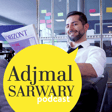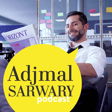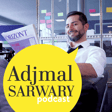
#19 - Markus Poschenrieder - From Law to GovTech: Digitalizing Social Services
Why do 90% of social benefit applications in Germany contain errors? And how can digitalization, user-centric design, and smart automation transform this cumbersome, costly system?
In this episode, I talk with Markus Poschenrieder from LeistungsLotse about their mission to guide citizens through the "jungle" of social benefits and reduce administrative overload. We explore how fragmented legislation and decentralized data create a maze of bureaucracy where people apply incorrectly or don’t apply at all, leaving many eligible benefits unclaimed and municipalities overwhelmed.
Key insights include:
- The real-life impact of administrative “ping pong” and incomplete applications costing municipalities €260+ per case.
- How LeistungsLotse's rule-based online platform centralizes information, validates applications for inconsistencies, and pre-fills required documents to streamline the process.
- The delicate legal boundary between providing information and giving personalized legal advice, and why automation in this space must stay strictly rule-based.
- The challenges of legacy software and contracting in public administrations, plus the growing openness now emerging towards innovative startups.
- Accessibility and language as crucial factors for inclusive digital services, to ensure that the system serves everyone fairly.
- The ideal future vision: no need to apply, just data-driven automatic benefit allocation with clear, user-friendly communication.
If you want to understand the governance, tech, and legal complexities behind social benefit digitalization, and why this desperately needed change is both an enormous challenge and opportunity, this conversation is for you.





